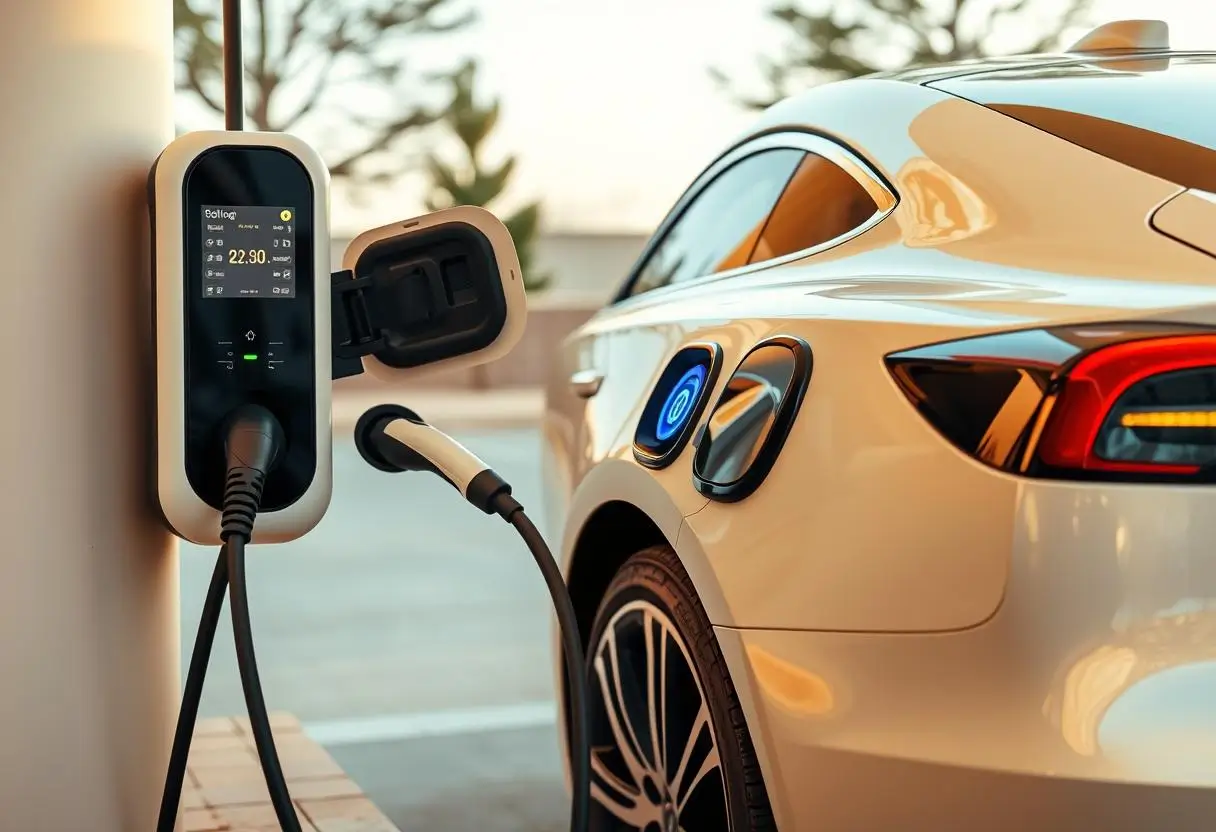Discover how much it really costs to power your electric car and if switching to an EV is the right choice for you.
Factors Affecting Electric Vehicle Charging Costs
Electricity Rates
Electricity prices vary widely depending on your location, time of day, and energy provider. Some areas have cheaper rates for overnight charging, which can significantly reduce your charging costs.
Vehicle Battery Capacity
The size of your EV’s battery determines how much energy it can hold and, therefore, how much it costs to fully charge. Larger battery capacity typically results in higher charging costs.
Charging Method
Charging methods also affect costs. Level 1 charging, using a standard household outlet, is the slowest and least expensive. Level 2 charging, using a dedicated outlet, is faster and more expensive. DC fast charging is the fastest and most expensive, but can be convenient for long road trips.
Calculating Charging Costs
| Battery Capacity (kWh) | Electricity Rate ($/kWh) | Charging Cost ($) |
| 60 | 0.15 | 9 |
| 80 | 0.20 | 16 |
| 100 | 0.25 | 25 |
The table above shows a basic calculation for charging costs. Your actual cost may vary based on the factors mentioned previously.
Comparing Charging Costs to Gasoline
Fuel Efficiency
Electric vehicles typically have a much higher fuel efficiency compared to gasoline cars, meaning you’ll go further on a single “fill-up” (charge).
Electricity vs. Gasoline Prices
While electricity prices vary, they are generally much lower than gasoline prices, especially when considering the energy efficiency of EVs.
Long-Term Savings
Over the long term, driving an EV can result in significant savings on fuel costs compared to driving a gasoline car.
Charging at Home vs. Public Charging
Home Charging
Home charging is the most common and convenient method, allowing you to charge your car overnight while you sleep. Most home charging stations use Level 2 charging, which is faster than Level 1.
Public Charging
Public charging stations are available in various locations, including shopping malls, parking garages, and along highways. Public chargers can vary in speed and cost, and some offer different levels of charging (Level 2 or DC fast charging).
Tips for Saving on Electric Vehicle Charging Costs
Charge at Off-Peak Hours
Take advantage of lower electricity rates during off-peak hours, typically overnight, to reduce charging costs.
Use a Smart Charger
A smart charger allows you to schedule charging times and take advantage of cheaper rates, potentially reducing your electricity bill.
Consider Solar Power
If you have solar panels on your roof, you can use free solar energy to charge your electric vehicle, significantly reducing your charging costs.
Sign Up for Charging Plans
Some energy providers offer special charging plans for EV owners, which can provide discounts or incentives for charging at home.
Factors to Consider When Calculating Electric Vehicle Charging Costs
Climate
Cold weather can significantly reduce an EV’s range, requiring more frequent charging and potentially increasing costs. Similarly, using climate control features like heating and cooling can affect battery consumption.
Driving Habits
Your driving habits, such as aggressive acceleration and frequent braking, can impact battery consumption and therefore charging costs. Driving efficiently can help you maximize range and reduce charging expenses.
Vehicle Model and Features
Different EV models have varying battery capacities and energy efficiency, affecting charging costs. Advanced features like heated seats and premium sound systems can also impact battery usage.
The Future of Electric Vehicle Charging Costs
As electric vehicle technology continues to advance, battery capacities are increasing and charging times are decreasing. This means that the cost of charging an EV is likely to become even more affordable in the future. Additionally, with the increasing adoption of renewable energy sources, electricity prices are expected to stabilize or even decrease, further reducing the cost of charging.
Conclusion: Is an Electric Vehicle Right for You?
Cost Savings
Electric vehicles offer potential cost savings compared to gasoline cars, especially in the long term. Charging costs can be significantly lower than fuel expenses, and you may be eligible for government incentives or rebates.
Environmental Benefits
Electric vehicles are powered by electricity, which can be generated from renewable sources. By choosing an EV, you’re contributing to a cleaner and more sustainable transportation system.
Driving Experience
Electric vehicles offer a smooth and silent driving experience, with instant torque and impressive acceleration. They also have lower maintenance costs compared to gasoline cars.Find an EVCompare Charging Costs
